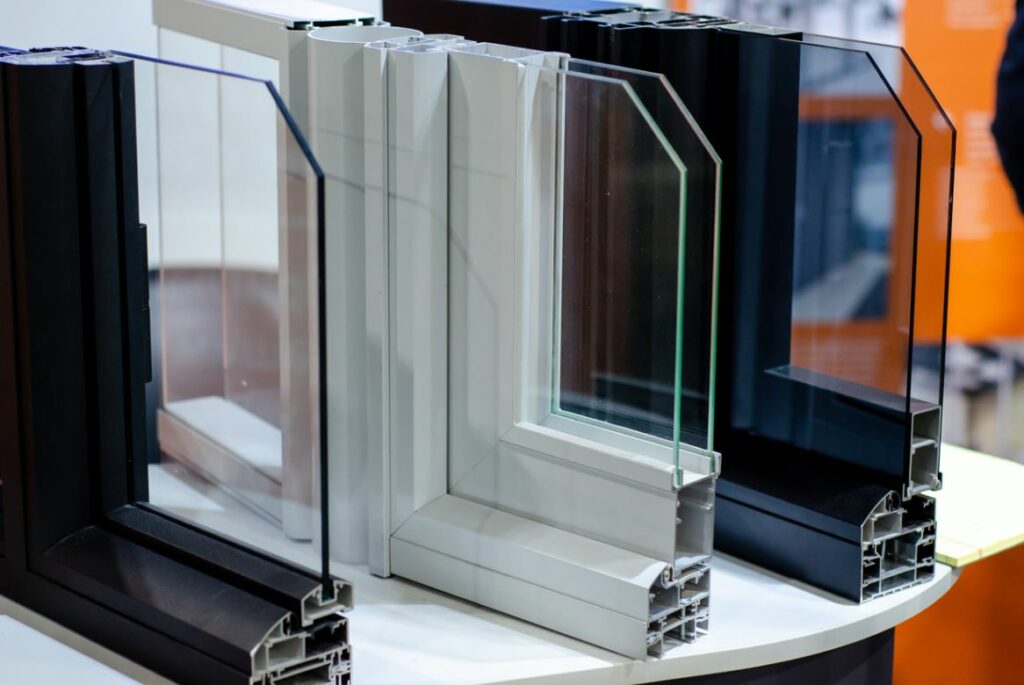When you live in a city it’s almost impossible to escape the noise. Many of us simply assume that noise is just a nuisance we have to put up with, but in truth, noise pollution has a negative impact on your health and well-being. But by soundproofing windows, your home can become a sanctuary of respite and calm, and more importantly, quiet.
In this article, we’ll explore how to soundproof windows so you can take actionable steps to reduce noise pollution in your home. We’ll shed light on how soundproof windows work, the common types of noise pollution we’re exposed to, as well as share 10 ways to soundproof your windows.
If you live in a noisy neighbourhood, and you need noise cancelling windows, this is the article you’ve been listening out for.
Soundproof windows work by reflecting, absorbing, and dissipating sound waves. They’re typically made with thicker and heavier glass than regular windows, and some have a special coating to absorb sound.

Soundproof windows will also have multiple panes of glass, double or triple glazing, with an air gap between each pane – the air gap helps to break up sound waves and reduce noise transmission.
In addition to the glass itself, the window frame and seals also play a major role in noise cancelling windows. A well-sealed window will prevent air leaks, which can allow noise to enter the home. To further reduce external noise levels from entering your home, the window frame should be made of a heavy material, such as hard wood, to help block out sound.
The best type of soundproof window for your needs will depend on a number of factors, including the level of noise reduction you need, the budget you have, and the aesthetic of your home.
Noise pollution can manifest in many forms, from the roar of traffic on a nearby road, to the incessant barking of a neighbour’s dog. Whether it’s continuous, intermittent, or impulsive, noise pollution can have a negative impact on our health and well-being.
Some of the most common types of noise pollution include:
Cars, lorries, buses, motorcycles, aeroplanes, trains, and boats are all major sources of transportation noise. This type of noise pollution can be especially disruptive in urban areas.
Construction sites can be incredibly noisy with jackhammers, bulldozers, and other heavy machinery operating all day long. This type of noise pollution can be particularly bothersome to people who live or work near construction sites.
Factories, power plants, and other industrial facilities can generate a lot of noise. This noise can be especially annoying to people who live or work near industrial areas.
This list is far from exhaustive. In addition to these common types of noise pollution, there are lots of other sources of noise that can be irritating, such as loud music, lawnmowers, leaf blowers, and generators.
Noise pollution has a tangible impact on both our mental and physical health. The most common health problem caused by noise pollution, according to the National Geographic Society, is Noise Induced Hearing Loss. But that’s not all.
In a study carried out by the British Medical Journal, residents who lived near to Heathrow Airport were 10-20% more likely to be admitted to hospital with cardiovascular disease or for a stroke.
A German study, one of the largest and most comprehensive studies on the health effects of noise pollution on noise pollution and health, published in the journal Environmental Health Perspectives in 2016, found that exposure to noise pollution is associated with an increased risk of death from all causes. The researchers discovered that people who were exposed to noise levels above 55 decibels (dB) had a 10% higher risk of death from all causes than people who were exposed to noise levels below 45 dB. The risk of death from cardiovascular disease was also increased in people who were exposed to noise levels above 55 dB.
Furthermore, a 2023 study by the UK Health Security Agency (UKHSA) to better understand how noise can affect health and wellbeing, revealed that people living in London, the Southeast and Northwest regions suffered the most with road-traffic noise. Londoners had the worst aircraft noise pollution.

The most effective soundproof windows are those that are made with thick, heavy glass, and have multiple window panes with air gaps in between (double glazing or triple glazing).
In addition to the type of glass, the window frame you choose will also determine how much noise reducing your windows can do.
Casement windows, for example, are generally considered to be the most effective type of window for soundproofing. Casement windows have a single sash that pivots outward on hinges, and they have a tight seal between the sash and the frame, which helps to prevent air leaks. Additionally, the casement design helps to distribute the weight of the window evenly, which reduces vibration and noise transmission.
Sash windows, on the other hand, are less effective at soundproofing than casement windows because the sliding mechanism (sash windows have two sashes that slide up and down in the frame) can create air gaps. Additionally, sash windows are more likely to vibrate, which can transmit noise. Saying that, sash windows can become noise reduction windows by using heavier sashes and by installing weatherstripping around the edges of the sashes.
Conventional windows, like uPVC windows, are designed to let in light and provide ventilation, not to block out noise. As a result, they’re not very effective at stopping noise from coming into the house. They tend to be made with thin glass, not noise reduction glass, have air gaps around the panes of glass allowing sound waves to pass through, and they’re also not well sealed, simply because they tend to be made cheaply.
So, how can you soundproof a window?
Soundproofing your windows is a great way to reduce noise pollution in your home. There are a number of steps you can take to soundproof your windows, including:
It’s important to note that sound proof windows are not perfect. They will not block out all noise, but they can significantly reduce the amount of noise that enters your home.
When choosing a specialist to install soundproof windows, to do your research and choose a company with a good reputation, experience installing soundproof windows in a variety of settings, as well as offer a warranty on their work and windows.
Windows & Doors UK is a specialist hardwood window and door manufacturer based here in the UK. We have over 20 years of experience manufacturing and installing bespoke windows in homes and businesses. We also offer a comprehensive warranty on our work and on the windows we install.
One of the cheapest and most effective ways to soundproof your windows is to seal any air gaps. Air gaps around the window frame and sash can allow noise to enter your home. You can use weatherstripping or caulk to seal these gaps.
One of the most effective ways to soundproof your windows is to install double- or triple-paned glass. Double- and triple-paned glass have two or three layers of glass, respectively, with an air gap between each layer. This helps to break up sound waves and reduce noise transmission.
The cost of soundproofing windows depends on what option you choose. Some methods, such as installing new windows with double- or triple-paned glass, can be expensive. However, there are more affordable methods, such as sealing air gaps and hanging heavy curtains.